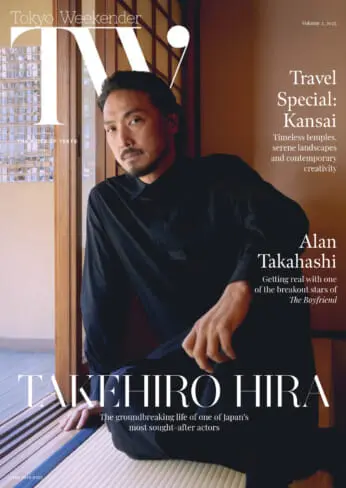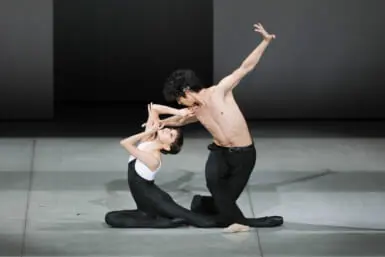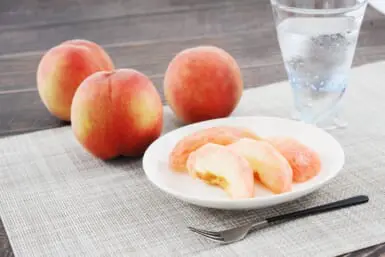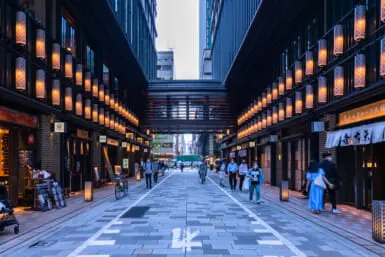Tokyo Weekender’s series TW Creatives feature various works by Japan-based writers, photographers, videographers, illustrators and other creatives in a bid to provide one additional platform for them to exhibit their talent. The works submitted here belong entirely to the creators — Tokyo Weekender only takes pride in being one of their most passionate supporters!
The Next And Final Stop
The train followed the route of the winding river and the carriages tilted around tight bends that suddenly tipped into mountain tunnels. Occasionally Yume caught glimpses of they graceful cranes, their black-tipped wings lit by the sun.
At each station there was a new collection and deposit of chattering schoolchildren, part-time office workers heading home from the bigger towns, and grandmothers weighed down with bags of daikon and cabbage.
Until now, Yume had seldom left the city for more than a week, and she was full of curiosity and apprehension in equal measure. Her best friend, Suki, who had married just three months earlier, had promised to visit, but they were both wise enough to know that their new lives would make this difficult.
When she left for her honeymoon, Yume’s father had only nodded and kissed her briefly on the cheek. He couldn’t look her in the eye. Her mother had cried and handed her two jars filled with her homemade bean jam. Yume had been embarrassed when her new husband, Otome, had found them in her suitcase. Her mother had never been good at making anko, it was always too dark in color, and had a strange aftertaste. Otome laughed, said she would never need jam in Shikoku as the women in his family made enough to feed the whole of the island.
Her mother had also insisted on a trousseau of several kimono, sure that her daughter would need them in such a backwater village, where old customs and traditions would still be part of everyday life. Yume had laughed, but secretly she looked forward to wearing the beautifully embroidered pink silk houmongi and the pale green komon scattered with butterflies.
Otome put his hand over hers, and she shivered at the cool touch of his fingers. She turned to the window and watched her new world scroll by: a narrow vine bridge spanning the river below, its rough-hewn planks separated by gaps as wide as giants’ feet, paddy fields glinting like emeralds, trees weighed heavy with oranges, and rice straw drying on splay-legged racks, creating the illusion of huge shaggy beasts.
He stroked the back of her hand with the tip of his finger, just as he had done at breakfast on the morning after their wedding night. For a moment, Yume felt her guilt return. When their marriage was arranged her father told Otome and his parents that she’d had no experience of men.
Her father was a businessman from a traditional Osaka family, and there were expectations that his two daughters would marry within the circle of friends and acquaintances that formed his social and business network. But the man her father had lined up for her, Otome Kushida, was much older than her, and Yume wanted to continue her career as an English translator. She had seen how bored her elder sister was with her life in suburbia, and she had rebelled, forming a relationship with Hitoshi, an anime filmmaker. Her mother had met him, and admitted to liking him, but had warned Yume never to let her father hear of him, and not to fall in love.
And although Yume was in love with the idea of Hitoshi, something held her back. He was like free-form jazz, his mind racing off at tangents. He had no attention span or melody she could follow, and was only interested in his own ideas. She yearned for someone to pay her attention, to treat her with respect. Otome Kushida was a man who would do that; a man akin to her own father. Yet she knew it would be too easy to bow to pressure, and for several weeks she delayed her decision.
One afternoon, as they lay in Hitoshi’s bed, his mind elsewhere and already making plans for the next day, she tossed a coin.
Her father was delighted with the result, and her marriage to Otome was arranged without anyone ever knowing about her previous lover.
They had honeymooned for four days at the grandest hot spring resort in the Iya Valley. Their room jutted out over the mountainside, and the floor-to-ceiling windows had panoramic views across the valleys and peaks that changed color in the morning and evening light. Otome had been attentive and gentle, mistaking Yume’s quiet demeanor for fear. On their wedding night he had asked for dinner to be served in the room, and as soon as the last dishes were cleared he had led her to the private bathtub on the veranda. Afterwards, they lay down by the window, Yume’s silk robe spread beneath her on the tatami matting as the sun slipped silently behind the mountains. It was different to her experience with the filmmaker, and as they lay together in the fading light she believed she could be happy. Hitoshi had never been truly there in the moment. He was always distracted, thinking about his next idea, jumping out of bed to scribble a sketch or write something in his notebook. Otome made her feel that she was all that mattered.
The train slowed down again, and the guard announced the next and final stop. Otome gathered their cases together and stood by the door. Yume was suddenly nervous. Today she would meet her husband’s parents again and see the traditional wooden house where she was to live, the house where she was expected to bring up their children.
Rain pattered down on the deserted station. In the forecourt four battered palm trees bowed towards the sea. Yume couldn’t tell whether their cracked brown leaves were whispering a welcome or a warning. There was a lone taxi waiting and when the driver saw them he stepped out to help with their luggage. As the car doors closed, the world was hushed, and Yume was suspended in limbo between her old life and what lay ahead.
Almost immediately, their taxi stopped at traffic lights, and a young mother crossed the road in front of them, guiding a pram with one hand as she huddled beneath her umbrella, her legs splashed with rain. As she reached the other side, she turned, and the two women’s eyes met. For a moment Yume could see the bones of this woman’s life: a skeleton formed of disappointments and hopes, compromises and longing. She realized that her hand had closed over the door handle, and she snatched it away and placed it back in her lap.
Otome pressed both his hands over hers, and she looked up at him. It was too soon to tell whether he would protect her or possess her, too soon to guess if he would spend his evenings drinking in hostess bars, or whether he would let her be her own person while standing by her side.
As the lights changed and the taxi pulled away, Yume twisted round and waved through the rear window. The woman smiled and lifted her hand in return.
Author’s Profile

Amanda Huggins is an award-winning travel writer, author and poet. Her debut novella, All Our Squandered Beauty, will be published in January 2021. Amanda grew up on the north-east coast of England, moved to London in the 1990s, and now lives in West Yorkshire. She has made several trips to Japan over the last fifteen years and has a great interest in all aspects of Japanese culture and lifestyle. She is also a voracious reader of Japanese literature in translation and a big fan of Japanese cinema. She worked in engineering for twenty years and is also a creative writing tutor and competition judge. You can pre-order All Our Squandered Beauty from Victorina Press here and Amanda‘s short story collections, Separated From the Sea and Scratched Enamel Heart are available online from Amazon, Waterstones, Barnes & Noble etc. Follow her on Twitter @troutiemcfish
Read more of Huggins’ fiction work here:

Want to be featured next? Write us at editor@tokyoweekender.com









